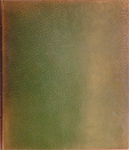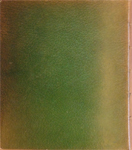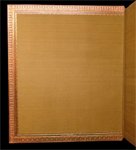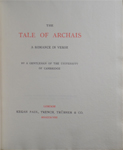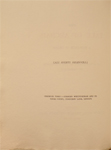100th
MP

|
THE
100th
MONKEY
PRESS |
|
|
|
Limited Editions by Aleister Crowley & Victor B. Neuburg |
|
Bibliographies |
|
Download Texts
»
Aleister
Crowley
WANTED !!NEW!!
|
|
THE TALE OF ARCHAIS |
|
Image Thumbnails |
||||||||||||||||||||||||||||||
|
Title: |
The Tale of Archais. A Romance In Verse by A Gentleman of the University of Cambridge. |
|
||||||||||||||||||||||||||||
|
Variations: |
|
|||||||||||||||||||||||||||||
|
Publisher: |
Kegan Paul, Trench, Trübner & Co.1 |
|||||||||||||||||||||||||||||
|
Printer: |
The Chiswick Press: Charles Whittingham and Co., Tooks Court, Chancery Lane, London.1 |
|||||||||||||||||||||||||||||
|
Published At: |
London.1 |
|||||||||||||||||||||||||||||
|
Date: |
1898.1 Richard Kaczynski places the published date at January 1899.5 |
|||||||||||||||||||||||||||||
|
Edition: |
1st Edition.1 |
|||||||||||||||||||||||||||||
|
Pages: |
viii + 89.1 |
|||||||||||||||||||||||||||||
|
Price: |
Priced at 5 shillings for state (b).1 |
|||||||||||||||||||||||||||||
|
Remarks: |
Published under the pseudonym of “A Gentleman of the University of Cambridge”1 presumably in honor of Shelley who published his St. Irvyne; or the Rosicrucian: a Romance as “a gentleman of the University of Oxford.” Title page printed in black and red.1 Crowley was disappointed with Kegan Paul's management of his book sales and closed his account with them in May of 1904. Between 1902 and 1904, Kegan Paul had not managed to sell even one copy of The Tale of Archais.4 With the exception of the epilogue, and one or two of the lyrics, Crowley wished to suppress the whole of The Tale of Archais.6 |
|||||||||||||||||||||||||||||
|
Pagination:2 |
|
|||||||||||||||||||||||||||||
|
Contents: |
- Author’s Ballade of His Tale - Prologue, The Faith of Life - The Tale of Archais - Epilogue |
|||||||||||||||||||||||||||||
|
Author’s Working Versions: |
|
|||||||||||||||||||||||||||||
|
Other Known Editions: |
|
|||||||||||||||||||||||||||||
|
Bibliographic Sources: |
|
|||||||||||||||||||||||||||||
|
Comments by Aleister Crowley: |
During my three years at Cambridge my literary faculties made sudden strides. The transition was brief. It is marked by my The Tale of Archais. — The Confessions of Aleister Crowley. New York, NY. Hill and Wang, 1969. Page 138. ______________________________
There remain my narrative and dramatic books on love. The Tale of Archais is simply jejune; I apologize and pass on. — The Confessions of Aleister Crowley. New York, NY. Hill and Wang, 1969. Page 138. |
|||||||||||||||||||||||||||||
|
Reviews: |
We should not be much surprised to find that the “Gentleman of Cambridge University” was the author of Songs of the Spirit. There is the same delicacy of touch in each. Archais, a woodland nymph, is beloved of Charicles, “the darling of the dawn.” The maiden has to share the terrible doom laid on her mother:—
I, her child, sore defiled With evil parentage, am now (most just Unpitying Zeus) condemned with her, I must The hated semblance of a serpent wear.
Charicles vows to free her, and the tale goes on to relate his visit to Aphrodite for aid, and the judgement of Zeus which overtook him for his rashness: follows the outwitting of the god, and the happy meeting of the lovers once more in human form. It is essentially a tale of love—the love that craves fulfilment; frankly pagan, but one with all Nature. The author has sought expression for the highest form of bodily love, and has found it without voluptuousness; his song runs as clear and free from the pollution of sensuality as Songs of the Spirit are free from morbidness and dècadence. We shall look with interest for more work from the same source. —The Oxford Magazine, November 29, 1899. ______________________________
“The Tale of Archais” describes the meeting and love of Archais, daughter of Lamia and Charicles, and the means by which, with Aphrodite’s aid, they eventually succeeded in averting the curse of Zeus. “A Gentleman of the University of Cambridge” wields a powerful pen, and much of his work is exceedingly beautiful. Unfortunately, we are unable to quote at any length, through want of space. The two stanzas appended are from the song on page 19:
Ere the grape of joy is golden With the summer and the sun, Ere the maidens unbeholden Gather one by one, To the vineyard comes the shower, No sweet rain to fresh the flower, But the thunder rain that cleaves, Rends and ruins tender leaves.
All the subtle airs are proven False at dewfall, at the dawn Sin and sorrow, interwoven, Like a veil are drawn Over love and all delight; Grey desires invade the white, Love and life are but a span; Woe is me! and woe is man!
In conclusion, as far as descriptive power and beauty of thought
are concerned, we consider that the author of “The Tale of
Archais” holds the first place among the latter-day poets. But
there are passages in the book in our opinion quite unsuitable
for the perusal of the white maiden of England, to whom it is
dedicated. We do not know whether the poet is an upholder of
“Art for Art’s sake,” which means that it is better to paint an
immoral picture well than to paint a moral picture badly. If
this is the case, we would counsel him to abandon this dangerous
fallacy, and to devote his undoubted genius to the task of
becoming a great poet in the true sense of the word. He can do
so if he will. ______________________________
‘The Tale of Archais.’ by a Gentleman of the University of Cambridge. 1898. (Kegan Paul, Trench, Trübner & Co.) It is scarcely to be deplored that the public shews little taste for such spurious romanticized mythology as the author of this little book has (in spite of his University training) dished up. Mr Swinburne indeed set the fashion for this class of poetry, but it is a vein which, in the nature of things, cannot be at once extensively and successfully worked. If this is a typical result of its working, the sooner would-be poets turn their energies in another direction the better. A stanza from this poem stands upon the front page of ‘Songs of the Spirit’ (Kegan Paul, Trench, Trübner & Co.), by Aleister Crowley, so that we may fairly infer an intellectual kinship between the two authors. If so, this is unlucky for the author of ‘Archais,’ as Mr Crowley does not reach a very high level. His work is redolent of blood and God and kisses, sharp swords, lilies and fire—all the furniture of mysterious eroticism. Fortunately Cambridge, among whose sons apparently Mr Crowley is to be numbered, has produced better poets than him. But whatever his shortcomings, he is at least an original observer. We suppose that the Trinity dance is the occasion upon which he remarks of the Cam that
Foul censers, altars desecrated, blight The corpse-lit river.
Elsewhere he sings—
So glad of life am I, If an angel came to call me I’m sure I should not die.
Perhaps it is a pity that there is little chance of his assurance being put to the test. —The Cambridge Review, 2 November 1899. ______________________________
This is not a very pretty story. The passions and adventures of Charicles and Archais are in a sickly, sensuous vein, which does not strike us as particularly Hellenic; or if Hellenic, it is Hellenic of the decadence. And when Zeus and Aphrodite intervene, it is in a fashion characteristic enough of their disreputable duties, but barely edifying. However, the “Gentleman of Cambridge,” though he has not good taste, has a certain command of facile rhythm. This is a fair example:
Archais. Cold is the kiss of the stars to the sea, The kiss of the earth to the orient grey That heralds the day; Warmer the kiss of a love that is free As the wind of the sea, Quick and resurgent and splendid.
Charicles. Night her bright bow-string has bended: Fast flies her arrow unsparing Through the beech-leaves, Æther it cleaves Rapid and daring. Ah! how it strikes as with silver! how the sun’s laughter is ended!
But the best thing in the book is the last quatrain of its epilogue:
Now a stream to ford and a stile to clamber; Last the inn, a book, and a quiet corner . . . Fresh as Spring, there kisses me on the forehead Sleep, like a sister. —The Academy, date unknown. ______________________________
“A Gentleman of Cambridge” has written, in “The Tale of Archais,” a volume which will make pleasant reading for “The White Maidens of England,” to whom it is dedicated. The writer’s technique is good; he has a pleasant vein of fancy; but he lacks utterly originality. The tale is an echo of Keats; the lyrics with which it is interspersed are echoes of Mr. Swinburne, or Tennyson, and sometime of Mr. Gilbert. These lines might be a very bad imitation either of Mr. Swinburne or of Tennyson:
O Kill me with the purple of Your Mouth! And Slay me with the Gold of Your Forehead! And bring me with you to the swarthy south! And bury me in your desire’s bed! —The Saturday Review, date unknown. ______________________________
A romance in verse, covering eighty-nine pages, and dedicated to the white maidens of England. The poetic merit is unequal and the lyrics have something lacking. Zeus, too, is too great and important a god to have “slept daintily,” and why was Robert Browning’s evil example followed in writing Phoibos for Phoebus, and Bacchos for Bacchus? especially as Cytherea, Cypris, and Charicles are allowed to remain in more familiar guise. —The Bristol Times, date unknown. ______________________________
The author of this romance in verse has been influenced apparently by the earliest and worst manner of Keats. In its rhymes and construction, its imagery and sentimentality, the poem is reminiscent of “Endymion;” but one looks in vain for even a fitful glow of the poetry which makes it possible—once in a lifetime—to read to the end of Keat’s ’prentice work. The story also seems to have been suggested by another of the poet’s poems. It is a version of the Lamia legend, with, however, new modifications. A fair youth, Charicles, loves a maiden of evil birth. Her doom it is that when she yields to love she will change into a snake. She yields to Charicles, and her metamorphosis is as well described as anything in the poem:
And lo! there came to pass the dreadful fate Her lips had shuddered out; her pulses bate Their quick sweet movement; on the ground she lies Struggling, and rending Heaven with her cries. Like light, in one convulsing pang, the snake Leapt in the sunlight, and its body brake With glistening scales that golden skin of hers. And writhing with pure shame, the long grass whirrs With her sharp flight of fury and despair.
There is no new note here. Even the epithets are conventional; nor does the author take to heart his master’s advice to poets to “load each line with gold.” In an epilogue to the story, written in a rougher metre, the author is somewhat happier. —The Critic, date unknown. ______________________________
Messrs. Kegan Paul have issued “The Tale of Archais: a Romance in Verse by a Gentleman of the University of Cambridge.” The author’s “Ballad of His Tale” opens thus:
Go to the woodlands, English maid, Or where the downs to seaward bend, When autumn is in gold arrayed, Or spring is green, or winters send A frosty sun, or summers blend Their flowers in every dainty dye, And take as you would take a friend, This pleasant tale of Thessaly.
|
|||||||||||||||||||||||||||||
